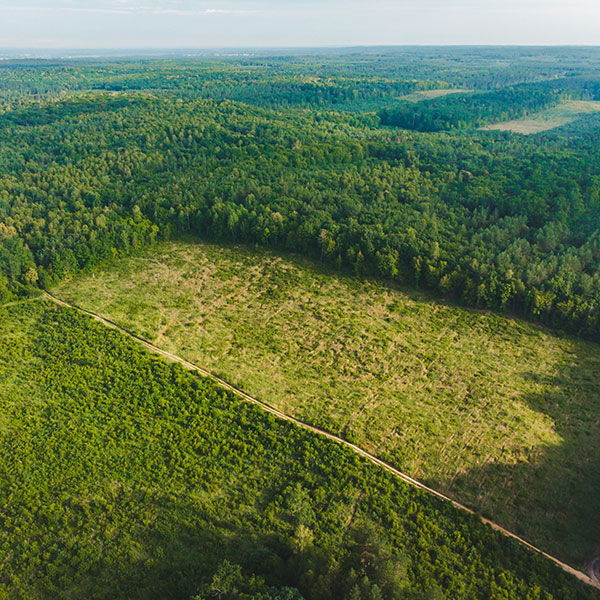
Innovating Tomorrow’s Climate Policies
The Paris Agreement is humankind’s most ambitious exercise in global cooperation. The United Nations Framework Convention on Climate Change has yielded more global consensus decisions than any other issue. Year in and year out, every nation on Earth agrees to detailed next steps and actions for climate policies that must be internationally audited.
Building Global Planetary Consensus
To scale natural climate solutions, local capacity building must synchronize with global climate agreements. The Carbon Institute works directly with academics, members of government, businesses, and policymakers to keep nature-based solutions at the forefront of the climate policy conversation.
Ocean Climate Policy | 2019 – Present
As the largest ecosystem on Earth, the ocean has been severely impacted by climate change. Ocean and coastal ecosystems play a key role in mitigating and adapting to climate change. However, until recently, the UNFCCC has not substantially addressed ocean climate mitigation or adaptation. Although the Paris Agreement embraces the principle of conserving oceans and coastal ecosystems, in practice oceans have been largely sidelined from UNFCCC climate policy.
Oceans must play a much larger role in global efforts to help communities fight and respond to climate change, and the 25th Conference of the Parties is poised to be the first “blue COP.” The Carbon Institute supports country delegations in negotiating toward ambitious and actionable ocean and climate policy outcomes.

The Carbon Institute has produced several research reports to frame the ocean and climate policy landscape and lay out possible solutions.
- At the 49th Subsidiary Body meetings in June 2019, we co-authored a report showing the clear need for improved ocean and climate policy. View PDF.
- A policy memo by the Carbon Institute explored an important but poorly understood option within the UNFCCC to have smaller groups of nations request the Conference of the Parties facilitate the coordination of measures adopted to address climate change. In addition to its application for more progressive climate and ocean policies, Article 7.2(c) of the Convention could be a useful policy tool to help the annual climate policy negotiations move beyond discussions and into implementation. View PDF.
- Macroalgae are some of the fastest growing organisms on Earth and sequester and store carbon. We are producing a first order estimate of the amount of carbon stored in California’s iconic kelp beds. This study, due to be released in early 2020, should help shape policy options for how improved wild kelp management can help fight climate change and enhance coastal ecology and resilience.
Forest Climate Policy | 2006 – Present
The Carbon Institute has helped shape international climate change policy since our beginning as the Tropical Forest Group in 2006. Our focus has always been on promoting and enhancing nature-based solutions to climate change.
We played an early and active role supporting the tropical forest conservation programs through policy innovations, capacity-building, and scientific reports. We were also the first lead technical advisor to the sub-national innovation hub, the Governor’s Climate and Forest Task Force. In the past we supported a range of humanitarian carbon projects in Africa.
For almost 15 years, the Carbon Institute and its predecessor the Tropical Forest Group have produced research that has shaped climate policies to safeguard community rights and ecosystem services, including:

2015 – Present
- Provided research to support nations that want international climate change cooperation to do more for oceans
- Explored new legal options for moving oceans (and other topics) beyond negotiating and into implementation of willing coalitions, through Article 7.2c of the United Nations Framework Convention on Climate Change
2010 – 2015
- Built a global non-partisan negotiation tracker during the Paris Agreement, that was ranked the fifth most influential social media tag during the talks. This project helped sustain momentum toward a final agreement.
- The Carbon Institute secured website domains related to the Paris Agreement. We use these domains to serve ambitious global climate change policy and are not taken by forces from the darkside.
2005 – 2010
- Published and promoted some of the first nation-by-nation global estimates on the potential for forest conservation, reforestation,and agriculture to abate climate change.
- Submitted REDD+ policies documents over the years to the UNFCCC and the State of California, with a focus on reference levels.
The Carbon Institute Making News
The first thing is we need to reduce emissions. We need to pull as much carbon out of the atmosphere with natural systems. The biggest thing we can do is to stop cutting forests and to replant forests on hundreds of millions of acres that we’ve already degraded. Those have a lot of co-benefits for people who live in those communities and plants and animals and water supplies. These are no-brainer solutions. The Paris Agreement was a major solution. Every country agreed to targets and how to get there. We have to measure each countries emissions and then we see if they’re meeting those pledges. – John-O Niles. National Public Radio’s On Point. Cleaning Up the Carbon in our Skies. July 16, 2017.
President Trump’s withdrawal of the United States from the Paris agreement belies science, a near-universal agreement on climate change, and reason itself. Scientific understanding of climate change led 195 countries to build the Paris agreement’s modest but important pillars of domestically determined goals, financing and carbon accounting. It is a model for how nations should solve future problems — problems even America may face. Mr. Trump’s decision is not only an arrogant abrogation of science and cooperation but also defies logic. Ignoring job opportunities in clean innovation and relying on 18th-century technologies is a mistaken bet to “make America great again.” – New York Times. Letters: Outrage Over Trump’s Climate Decision. June 1, 2017
We cannot rely on the local governments [for carbon accounting],” says Rizaldi Boer, who heads the Centre for Climate Risk and Opportunity Management in Southeast Asia and the Pacific in West Java. “We need to integrate this kind of training into the local universities.” – Nature. Paris climate deal hinges on better carbon accountancy. January 26, 2016
John Niles teaches greenhouse gas accounting… In Paris he launched an international partnership with similar trainers around the world called the Carbon Institute. They’ll educate a generation of greenhouse gas accountants who can do the work in every country the Paris agreement demands. And if countries can’t or don’t report properly, or try to hide what they are really doing, Niles says the same accounting skills can reveal the truth anyway. “Of course we can check on governments,” he says. “Satellites can check CO2 in the atmosphere … they can measure the size of a forest and take multidimensional pictures … they can create a pretty good picture of what a country is doing,” he says. – The Guardian. Paris climate deal might just be enough to start turning the tide on global warming. December 12, 2015.

